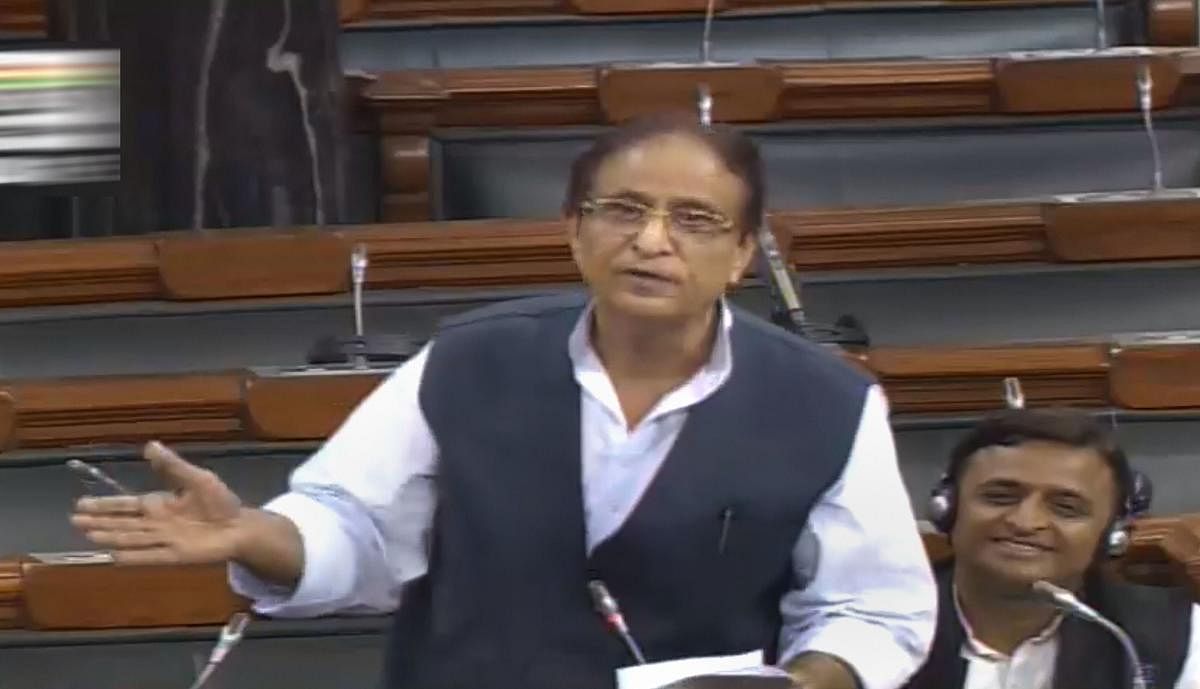
A close associate of Samajwadi Party leader Azam Khan is among the over 150 people identified by the police for vandalism here last week during the violent anti-citizenship law protests that claimed a civilian's life, police said on Tuesday.
The police have assessed the total damage to property to the tune of Rs 15 lakh so far which would be compensated by those involved in its destruction, a senior official said.
The process is underway to attach the properties of those identified so far, he said.
"More than 150 people have been identified so far for causing damages to public and private property. Parvez, a driver and close associate of former state minister Azam Khan, is also seen in pictures and video footages hurling stones at the police personnel," Rampur Superintendent of Police Ajay Pal Sharma told PTI.
Khan could not be reached out for his comments immediately.
A 22-year-old man died of a bullet injury here on Saturday during the violence in which several locals and policemen were injured, and six vehicles, including a police motorcycle, were torched, according to officials.
So far, 33 people have been arrested in Rampur in connection with the violence, the police said.
Protests against the Citizenship (Amendment) Act had broken out in several districts of Uttar Pradesh on Thursday leaving at least 17 people dead and moveable and immoveable assets damaged, mostly in arson.
Along with UP, several parts of the country have witnessed protests against the amended Citizenship Act and the proposed implementation of a pan-India National Register of Citizens (NRC).
The Citizenship (Amendment) Act provides for grant of citizenship to persecuted minority Hindus, Sikhs, Christians, Jain, Buddhists and Parsis from Pakistan, Afghanistan and Bangladesh, who have taken refuge in India before December 31, 2014.
Critics say the law is against the country's secular ethos as it leaves Muslims out of its ambit.